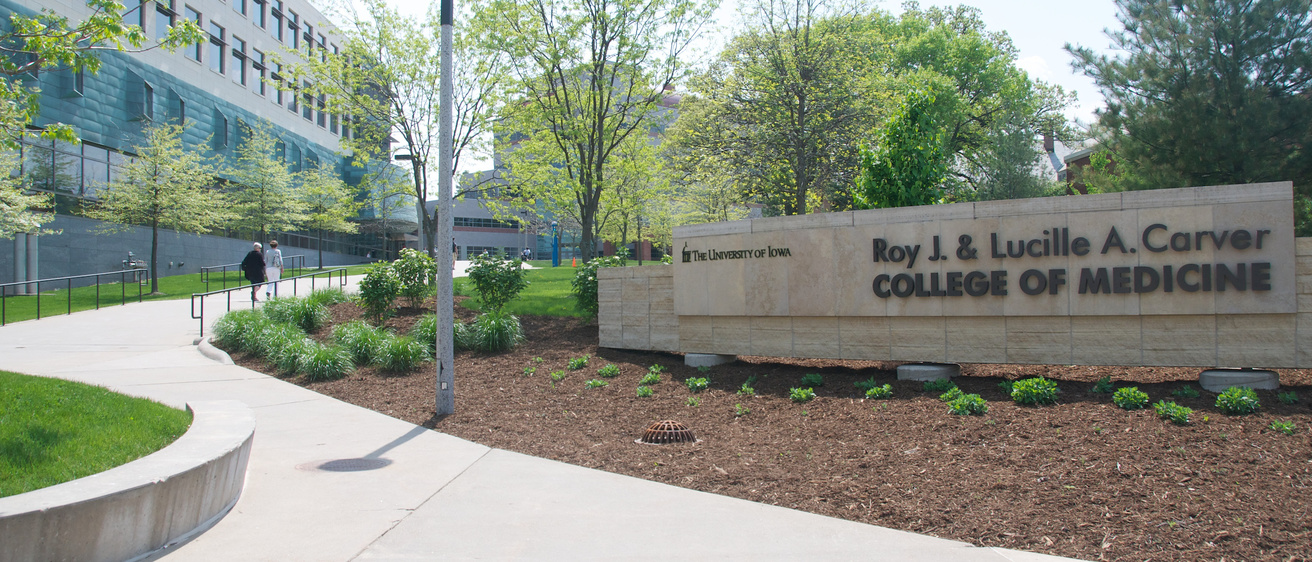
Breadcrumb
More Information and Frequently Asked Questions
Our goal is for all interns to leave the program with greater scientific knowledge, research experience, friendships, professional connections, and confidence in their career trajectory.
The application portal is open November 1, 2025 through February 1, 2026.
This 10-week program includes:
- a course on cancer taught by leaders in cancer research
- a research project guided by a near-peer mentor (such as a graduate student or postdoctoral fellow) and a faculty mentor
- career development programming
- creating a scientific poster and oral presentation on your research, and giving presentations
- a clinician shadowing opportunity, pending availability
- opportunities for social events
Please contact program staff with any questions at HCCC-Summer@healthcare.uiowa.edu.
Cancer Research Opportunities at Iowa is funded by the American Cancer Society and the National Cancer Institute.


Frequently Asked Questions
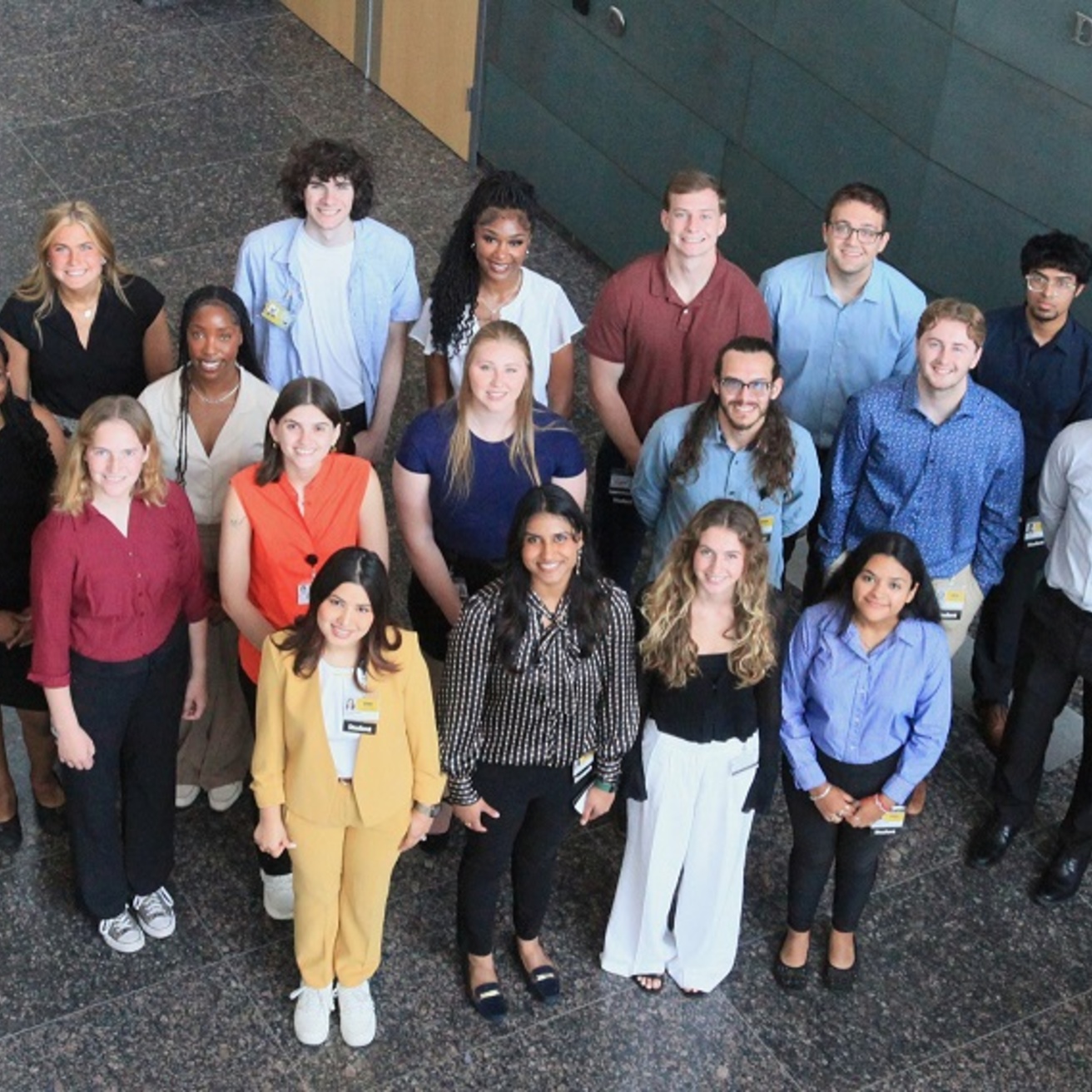
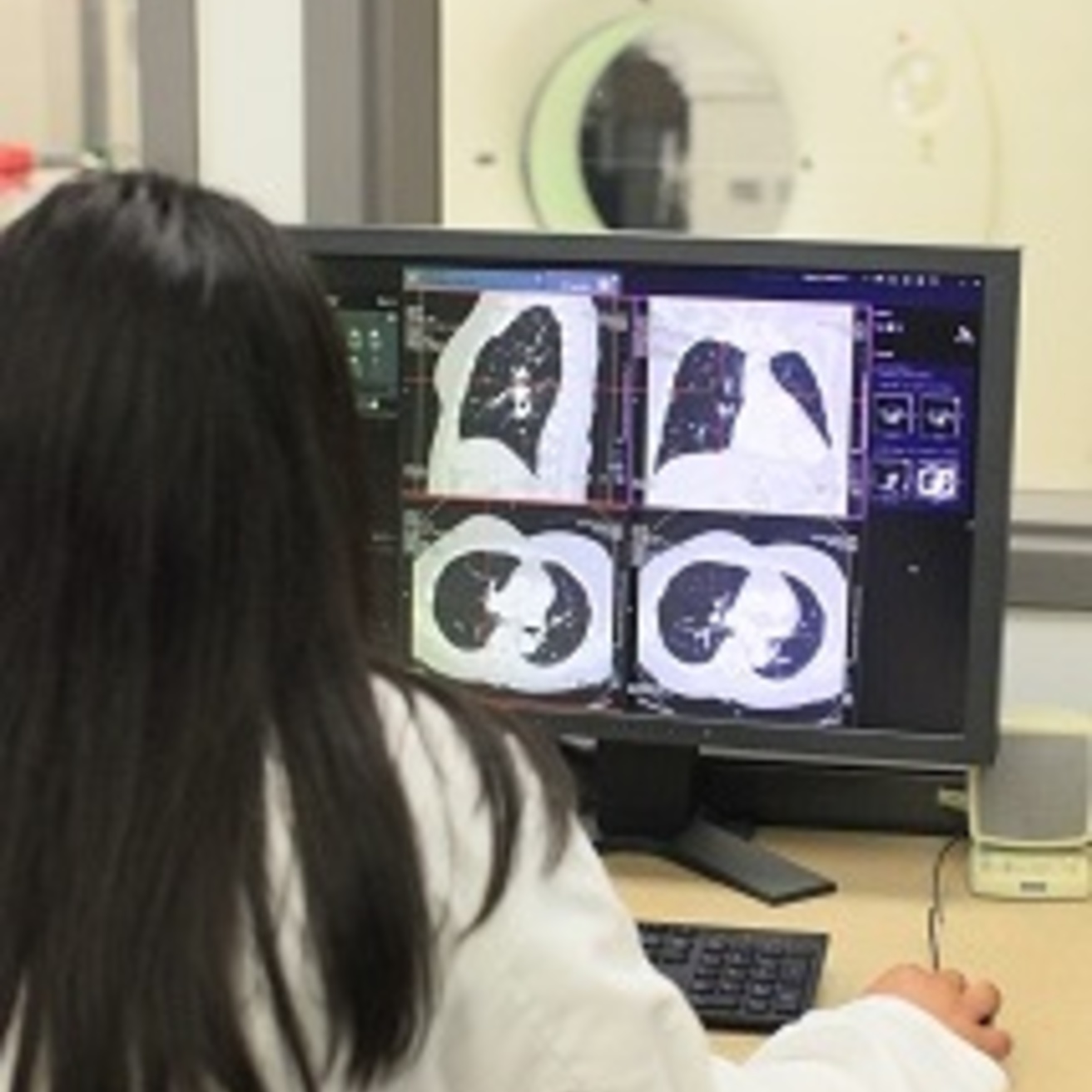
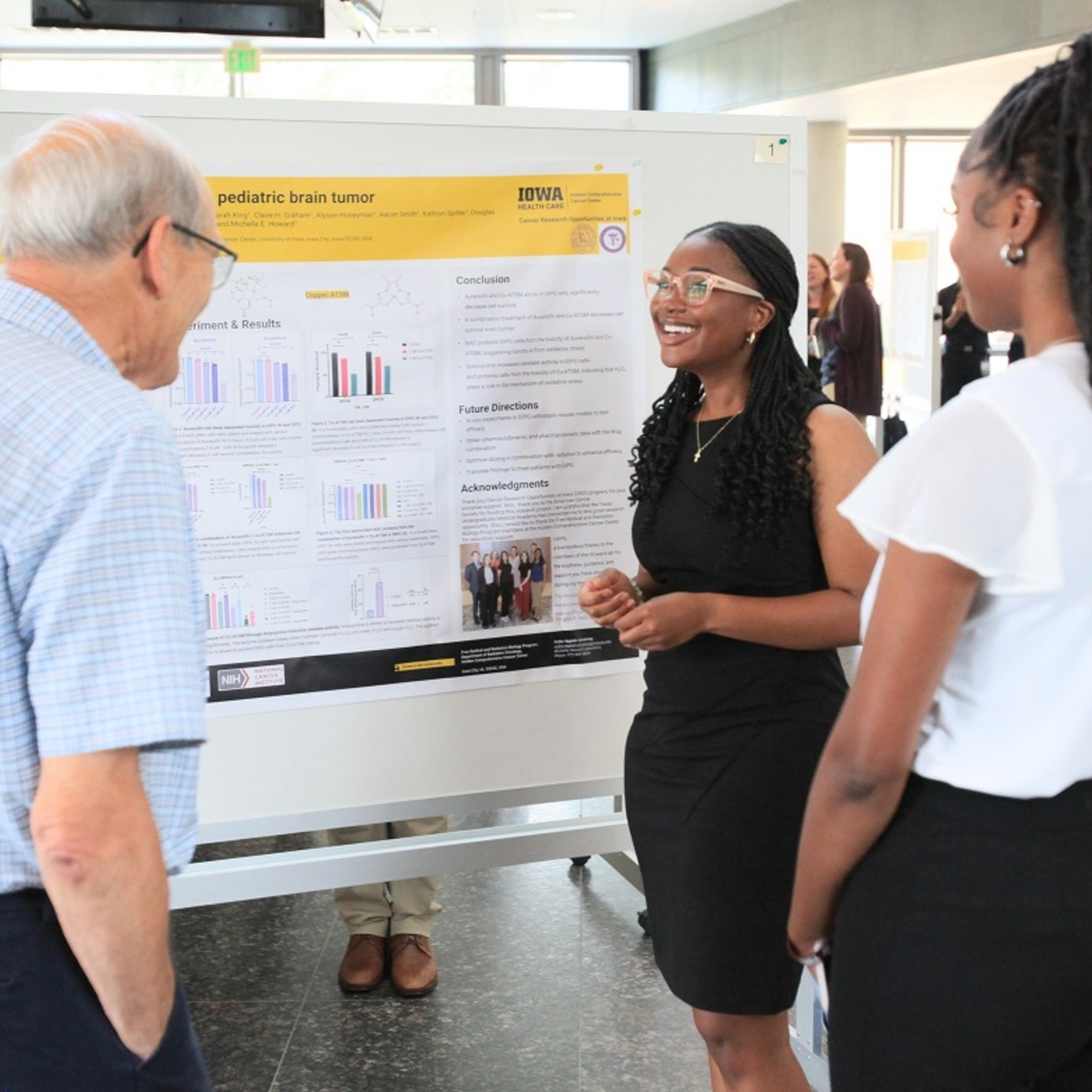
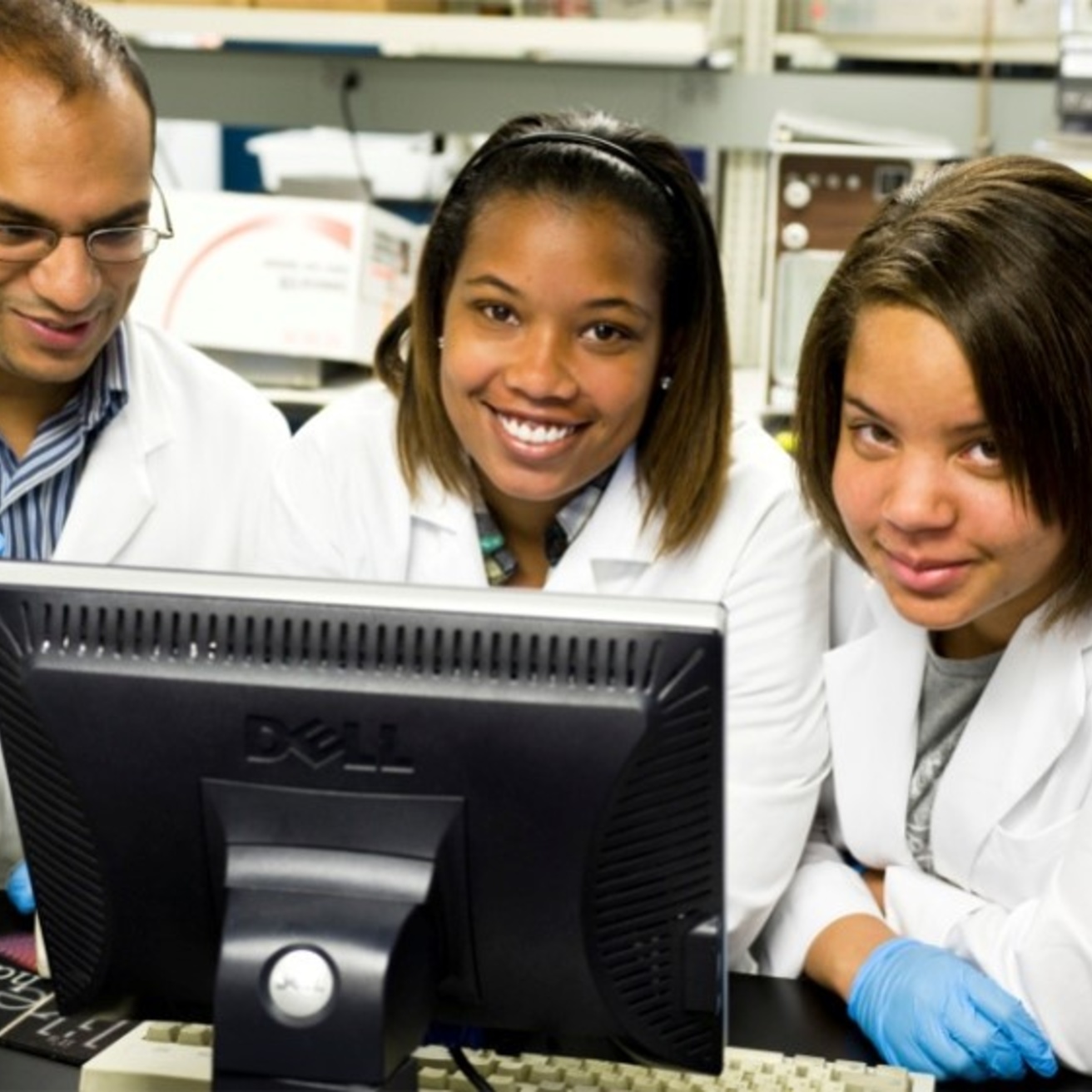

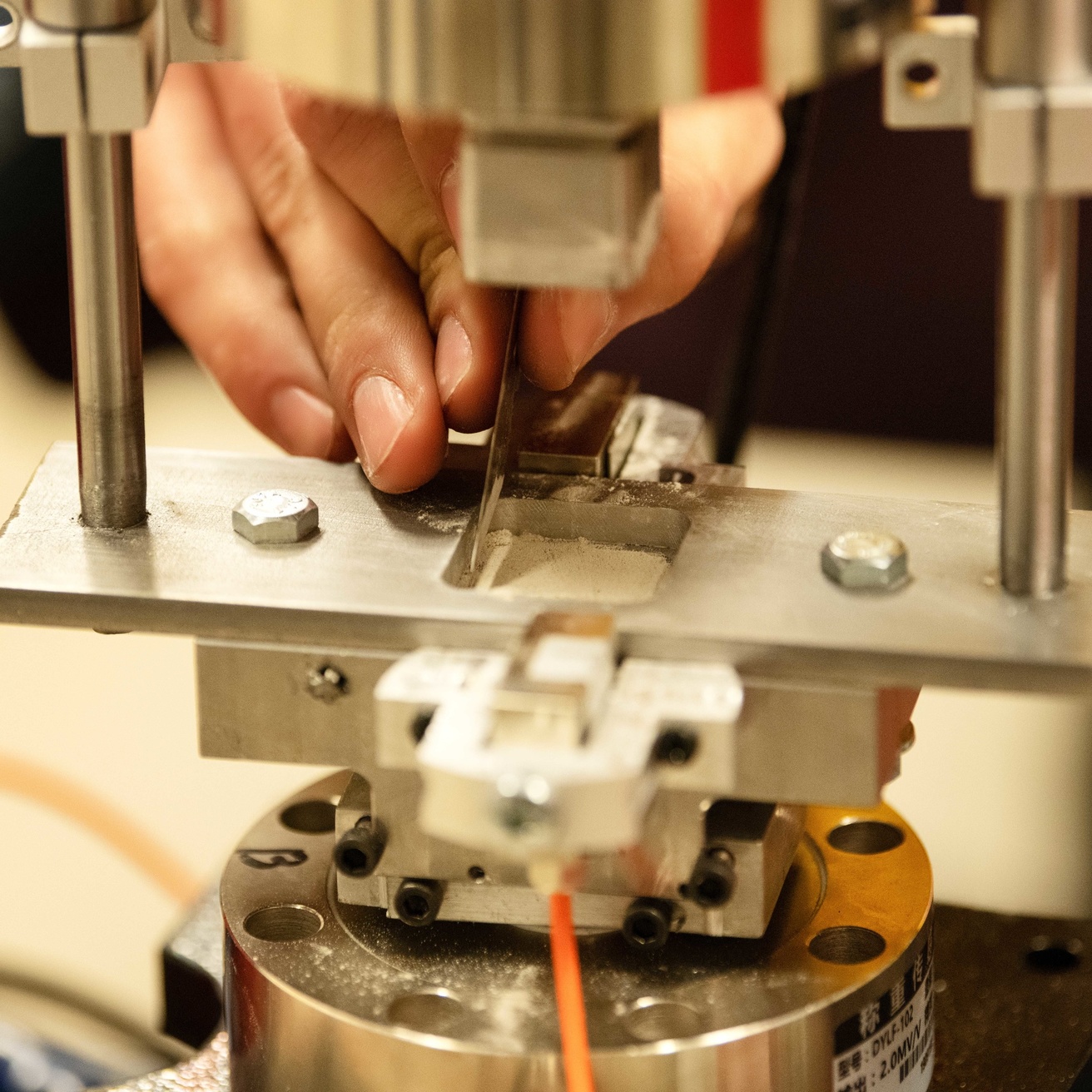

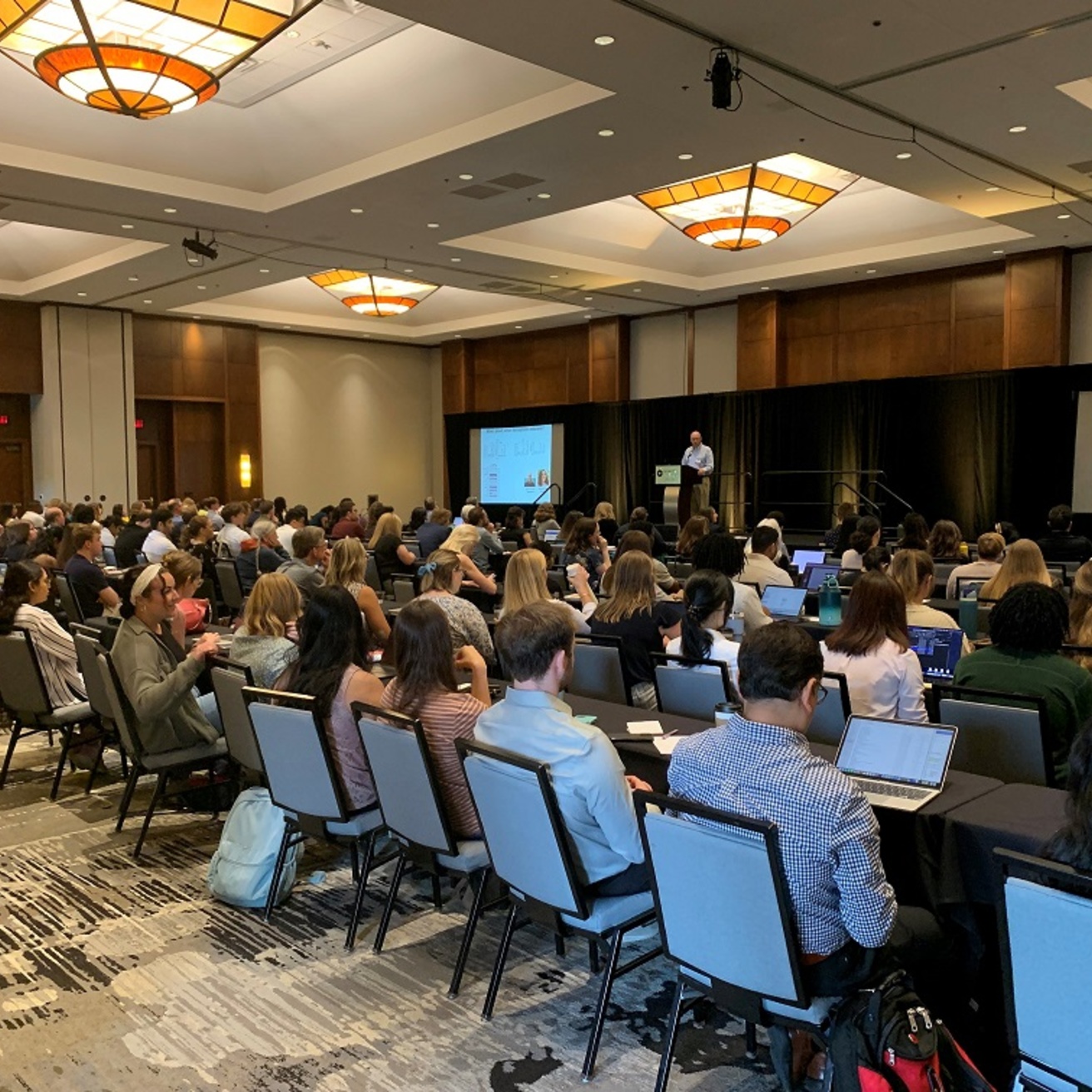
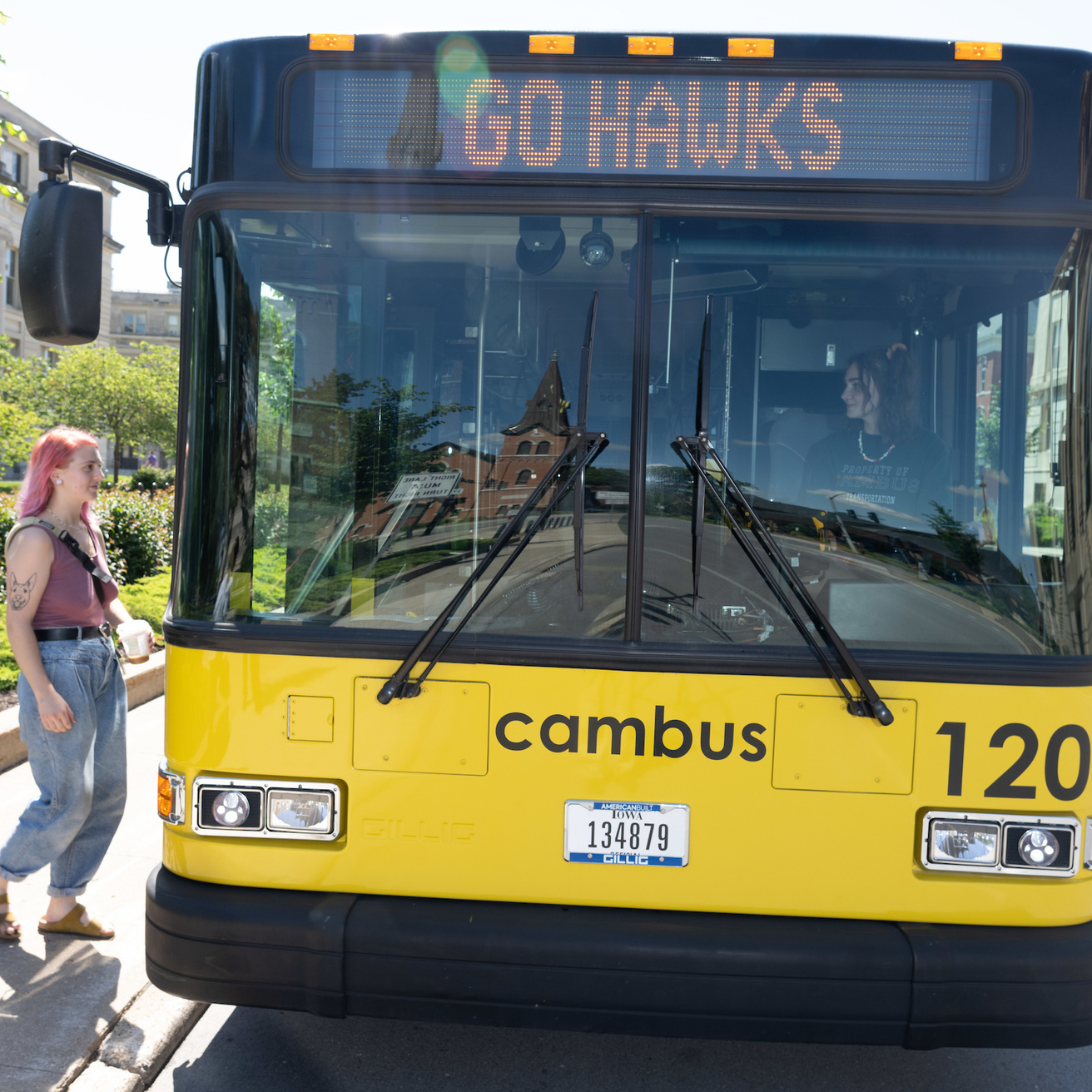
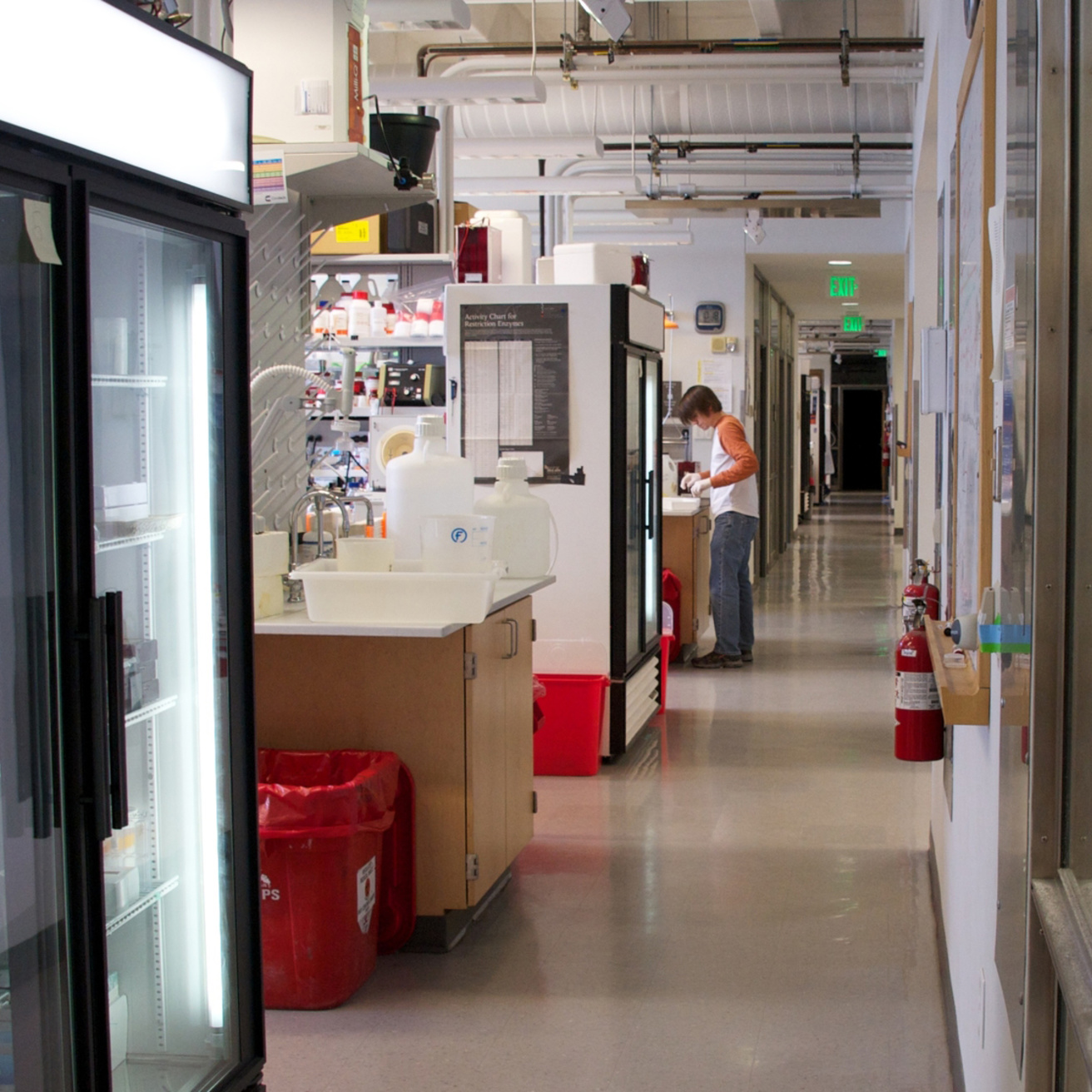


Am I eligible?
The applicant's cumulative GPA is preferred to be 3.0 or higher; students with lower GPAs of 2.5-2.9 can be accepted in special circumstances. Those in a 4-year degree program should have completed their sophomore or junior year prior to the summer. Students in a 2-year degree program are preferred to be entering their final year of their associate degree or in the summer prior to transferring to a 4-year college.
Do I need to have prior experience?
No, in fact we give preference to students who have not had the opportunity to conduct biomedical research other than in class labs.
What do I need for the application?
You should be prepared to have the following:
- The contact information for two faculty members who will write your letters of recommendation
- Your unofficial college-level transcript(s)
The following questions will be asked:
- Why do you want to attend this program? What do you hope to gain from this experience? (1-2 paragraphs)
- What do you find exciting about science and cancer research? (1-2 paragraphs)
- Have you had any research experience before, in school/college or other areas? Have you had any barriers to participating in research experiences other than class labs? (1-2 paragraphs)
- What are your career aspirations? (1-2 paragraphs)
- (Optional) Please address any concerns you may have in your application. If, for example, you do not believe that your academic credentials demonstrate your true capabilities, please explain why. Also, describe any gaps in your academic career. (350 word limit)
Do I have to have research experience already?
Prior research experience is not required. We are aware that many colleges and universities do not have opportunities for research or the research options are limited.
When is the program?
Interns will arrive in Iowa City and move into the dorm on Saturday, May 23, 2026. They depart on Thursday, July 30, 2026.
Do I need to attend the entire program?
Yes, but exceptions can be made for some reasons. For example, if finals week conflicts with the start of the program. We encourage applying and then we will discuss the circumstances. After arrival, participation in all required events is mandatory.
What will I do?
The program consists of a course on cancer, intense research experience, mentoring, and professional development opportunities, including creating and presenting a scientific poster and oral presentation. The program is full-time (40 hours per week), which includes all of the required and recommended activities and research time. Interns will have a near-peer from their lab who will provide direct support in the laboratory. Most workdays will be spent conducting research.
Interns are expected to work and attend CROI programming full-time from Monday through Friday. This includes any time spent on program activities. Weekends are free time, and our hope is that interns relax and fully enjoy living in Iowa City.
What kind of research is available?
The Holden Comprehensive Cancer Center faculty are in many different research disciplines in the Colleges of Medicine, Nursing, Engineering, Liberal Arts and Sciences, and Pharmacy. Cancer research takes many forms in different kinds of laboratories and research settings.
- Basic sciences, also known as wet lab research, such as analyzing chemicals or biological samples, animal research, microscopy, and genetics
- Nursing research, such as health outcomes of patients treated for cancer and management of symptoms
- Bioengineering, working on the creation of medical devices
- Computer-based research
Who will be my mentor?
The application will ask about research interests. It is important to select all topics or types of research of interest. The program director will use this information to assign interns to the best mentor and laboratory fit. Interns will be informed and be able to communicate with the mentor before the program starts. Please note that the mentor, especially if also a clinician or administrator, may have other responsibilities and may not be regularly in the lab. The actual mentors available for the CROI mentorship in 2026 depend on many factors.
Who will be my near-peer mentor?
The near-peer mentor will be a graduate student, post-baccalaureate intern, postdoc, or other staff who is part of your mentor's lab. They will be chosen by the mentor based on their research and ability to provide a teaching role.
What can I expect when I am in a lab?
Labs can have different expectations regarding when to report to the lab, what meetings to attend, and the training that is needed for equipment and animal research (if applicable). The near-peer mentor will provide most of the daily training and support.
What will my project be?
Research projects are selected by the mentor and near-peer to be an individual project that can be completed during the internship. It will be related to the current lab research. Interns, with the help of their mentors, will create and present a scientific poster and give a short oral presentation at the end of the program.
How do I get there? Will I need to pay?
Interns traveling by plane will have their flights arranged by and paid for by the program. Those traveling via personal car will be reimbursed for their mileage. Additional travel costs may also be reimbursed according to University of Iowa regulations. Interns who will have their personal car on campus will receive free parking at the Hancher parking lot. This lot is located about 1.4 miles from Petersen Hall and is serviced by a free University of Iowa bus.
How much do I get paid? Are the payments taxable?
Summer program interns are provided with a stipend of $6500 (gross) over the 10-week program. The net amount is lower due to social security, Medicare, and income taxes. Interns will fill out a W4 form and chose their allowances, which also impacts their take home pay.
Interns may choose to use any amount of their stipend for food; meal plans or additional food for meals are not provided by the program.
Stipend payments will be deposited electronically directly into the intern's bank account. CROI is supported by two grants, each of which have different requirements for how the payments can be made.
Please see IRS 2023 publication 970. The CROI stipend is not considered to be a scholarship. CROI is a non-credit, non-degree program with no tuition and the stipend is for room and board.
Where will I live?
Interns will be housed in the Petersen Residence Hall, which is located on the West side of Campus near the biomedical laboratories. They will live in a double room with a same-sex roommate. Petersen Hall has one kitchen which is available for use by one resident at a time. The program provides some basic non-food cooking supplies.
Is there a place to work out?
We provide free summer passes to the Campus Recreation and Wellness Center. This 20,000 ft2 fitness space includes a climbing wall, two swimming pools, a jogging track, basketball courts, and over 200 pieces of training equipment and free weights. It is located 5 blocks from Petersen Hall.
Is there a way to get around town?
The Iowa City area has three bus systems, the Cambus (University), the Iowa City buses, and the Coralville buses. Coralville is a smaller city which adjoins Iowa City. "Transit" is a free mobile app that tracks all three bus systems and has trip planning.
Petersen Hall is located next to the medical science part of the University of Iowa campus. It is also just a 15 minute walk to downtown Iowa City.
What is the weather like?
Average daily low and high temperatures range from the 60s to 90s. Rain or thunderstorms can occur and the air tends to be humid. An umbrella or raincoat is suggested. Weather that can produce tornados can also occur in Iowa.
Do I need my own health insurance?
Interns are required to have their own health insurance for the duration of the program.